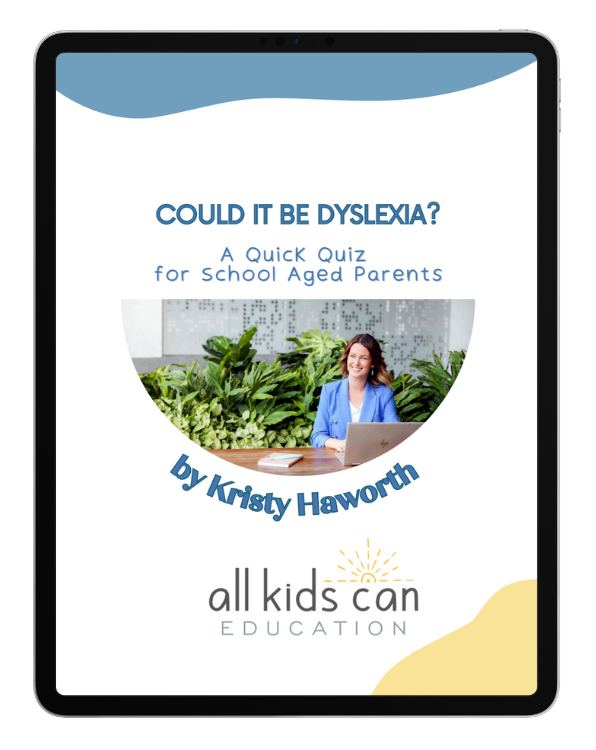Debunking the Myth of Vision Issues and Reading Difficulties

It is not uncommon for parents to learn of their child's reading struggles and consequently take their child to the local optometrist, assuming a connection between reading challenges and eye health concerns.
While it may seem logical to assume that vision problems may be at the root of these challenges, it is essential to clarify that dyslexia and reading difficulties are primarily related to language processing and not vision issues.
In this blog, we will explore why vision problems are not the cause of reading difficulties and emphasise the importance of seeking professional guidance from ophthalmologists for any concerns related to your child's eyes.
Vision vs. Language Processing
Many parents may turn to behavioural optometrists when their child struggles with reading, hoping that glasses or tinted lenses will provide a quick solution. However, it's crucial to understand the difference between vision issues and language processing difficulties. Behavioural optometrists specialise in evaluating visual skills but are not medical doctors. They may recommend prescription glasses, coloured overlays or tinted glasses to alleviate reading problems, which lacks scientific evidence.
Ophthalmologists: The Right Choice for Eye Concerns
If you are concerned about your child's eyes, it is advisable to consult an ophthalmologist. Ophthalmologists are medical doctors specialising in eye health and can diagnose and treat a wide range of visual issues. They conduct comprehensive eye exams and can determine if glasses or other interventions are necessary for actual vision problems.
Debunking Irlen's Disease and Coloured Overlays
Irlen's disease, characterised by sensitivity to specific light frequencies and often treated with coloured overlays or tinted lenses, lack scientific support. While some individuals may experience relief from these interventions, it is essential to recognise that these treatments do not address the underlying causes of reading difficulties, which are related to language processing.
The Real Root Cause: Phonological Processing
The primary issue behind dyslexia and reading difficulties is phonological processing, a cognitive function associated with the brain's ability to recognise and manipulate the sounds of language. Structured systematic phonics instruction, not reading glasses or tinted lenses, is the evidence-based approach for addressing these challenges. Such instruction focuses on teaching the relationship between sounds and letters, enabling individuals to decode words more effectively, developing the part of the brain that is responsible for phonological processing.
In conclusion, it is vital for parents and educators to understand that dyslexia and reading difficulties are not caused by vision issues but by language processing difficulties. When concerned about your child's eyes, consult an ophthalmologist, and when addressing reading difficulties, seek evidence-based interventions such as structured systematic phonics instruction. By focusing on the real root causes, we can provide better support and opportunities for individuals struggling with reading.
Stay connected with news and updates!
Join our mailing list to receive the latest news and updates from our team.
Don't worry, your information will not be shared.
We don't spam. We will never sell your information, ever.








